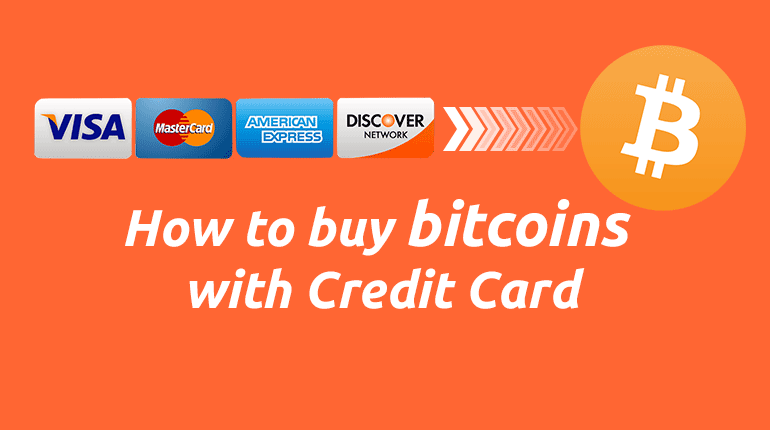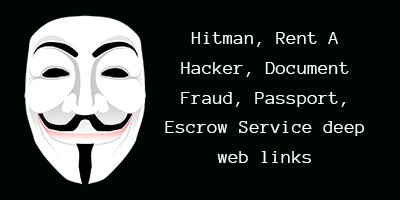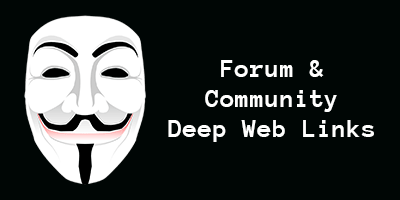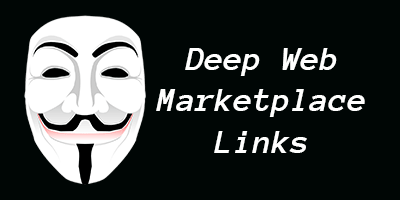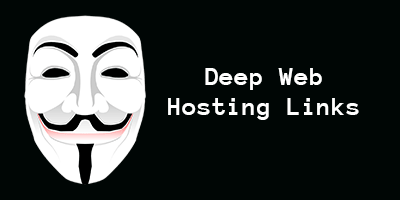If you’ve been searching for End to End encrypted cloud storage platforms, your search ends here. We’ve compiled this massive guide detailing cloud storage, as well as the companies which provide it.
Why End to End encryption is important? Well for starters, the internationally famed whistleblower Edward Snowden stated– “Dropbox is hostile to privacy, unlike ‘zero knowledge’ Spideroak”. That’s what stirred the world up against services such as the Google Drive, DropBox etc. which have access to our data.
And in other words, would you lock your house and let a stranger have the keys? That’s exactly what you’re doing by not opting for an End to End encrypted cloud storage service for your data.
There are factors which make one company better than the other. Hence, the primary factors based on which we’ve included these companies here are:
- End to End Encryption
- Privacy Laws
- Payment Modes
We’ve also explained the following in the very last parts of this piece in case you’re new to the whole End to End encrypted cloud storage thing:
- What is End to End Encrypted Cloud Storage?
- What is GDPR Compliance?
- What are Block level Backups?
- What is the difference between Cloud Storage, and Cloud backup services.
- And a couple more frequently asked questions.
So, let’s get started with this list of best end to end encrypted cloud storage services. for easy to comparison, I am preparing table for you.
| Name | Website | Server Country | Bitcoin Payments | GDPR Compliant | 2-FA | Link Download Limits | Custom Folder Permission | Password Protect Links | File recovery |
|---|---|---|---|---|---|---|---|---|---|
| Sync | https://www.sync.com/ | Canada | Yes | Yes | Yes | Yes | Yes | Yes | Yes |
| PCloud | https://www.pcloud.com/ | U.S.A | Yes | Yes | Yes | No | Yes | Yes | Yes |
| Mega | https://mega.nz/ | New Zealand | Yes | Yes | Yes | No | Yes | Yes | Yes |
| Ice Drive | https://www.Icedrive.net/ | - | No | Yes | Yes | No | No | Yes | Yes |
| Woelkli | https://woelkli.com/ | Switzerland | No | - | Yes | No | Yes | Yes | Yes |
| Opendrive | https://www.opendrive.com/ | U.S.A | No | Yes | Yes | No | Yes | No | Yes |
| IDrive | https://www.idrive.com/ | - | No | Yes | Yes | No | Yes | No | Yes |
| Spider Oak One | https://spideroak.com/one/ | U.S.A | No | Yes | Yes | - | Yes | - | Yes |
| Secure Safe | https://www.securesafe.com/ | Switzerland | No | Yes | Yes | No | No | Yes | Yes |
| Degoo | https://degoo.com/ | Switzerland | No | Yes | Yes | No | No | No | Yes |
| Tresorit | https://tresorit.com/ | Switzerland | No | Yes | Yes | Yes | Yes | Yes | Yes |
For brief description, you can read here.
1. Sync
Website: https://www.sync.com/
As the name suggests, Sync is most popular for its ability to Sync our files across multiple devices. It too offers Zero knowledge encryption so only the owner can access the files and no one else.
It complies to USA/EU GDPR compliance which further ensures data privacy. It offers automatic backups which lets us recover lost/deleted files at a later time.
It also features multiple Datacenters, across which the data is replicated ensuring availability and accessibility in case of an emergency, server-failure and other such instances with the main server.
Remote-wipe lets users wipe their data from remote locations and devices. 2-FA eliminates the risk of direct hacks. Expiry dates can be set on files making them inaccessible after the set time.
Finally, it provides for activity logs detailing who accessed, edited or made any interactions with the files. Alike Tresorit, Sync too doesn’t support Block-level backups.
Its datacenters are located in Canada. Its pricing plans are divided into Business Plans, and Personal Plans. It uses 2048-bit RSA, SSL/TSL encryption.
Cheapest Personal plan starts at USD $0.00 and offers 5GB Storage. Or you can go for the paid plan for USD $49.00/year.
Business plans are as follows:
- USD $5.00/user/month – Billed Annually. Minimum 2 users purchase required.
- USD $10.00/month – 1 User. Billed Annually.
- USD $15.00/user/month – Billed Annually. Minimum 2 users purchase required.
Payments can be made Credit/Debit cards, PayPal and even Bitcoin!
Pros:
- Strong Encryption.
- Affordable plans.
- Feature-rich.
- Available across multiple platforms.
Cons:
- Transfer speed is a tad bit slow.
- Media can’t be played on Sync.
2. PCloud
Website: https://www.pcloud.com/

Tread with caution, PCloud has both its advantages as well as disadvantages. If it’s security you’re looking for, PCloud is the choice.
The most concrete proof of that is, PCloud offered USD $100,000 to anyone who could hack it. The challenge lasted over 6 months, and a total of 2860 Hackers from established universities and organizations tried to hack into it, and failed. (Read Report).
Its servers are based in Texas, U.S and comply to U.S laws, that’s something to look out for.
Although the biggest problem with them is that they do not offer End to End encrypted cloud storage by default. Rather, it’s a paid add-on and can be purchased for an extra USD $125.00 one-time fee, or USD $4.99 if paid monthly.
It’s an additional service called pCloud Crypto, which lets users encrypt the data on their devices (client-side), making it impossible even for the company to decrypt it.
Does offer 2-FA, file-sync, password-protected links, expiry dates for files. Although doesn’t provide for a link download limit like Sync or Tresorit do. Block-level backup available.
Data protection is impressive, files are copied and stored in 3 different servers, and with 5 copies of each file. File history is tracked for 30 days and all of those versions can be accessed at a later time. Extended history can accessed by paying more.
Also offers “Offline files” mode which lets us make files available for offline access. It also features built-in video players, video streamer etc. HDD extension too is possible letting you use PCloud as an additional hard-drive on your systems.
Two types of plans are available – Annual & Lifetime. Lifetime plans are paid one-time and are as follows:
The advanced plans are:
Payment can be made using PayPal, Credit/Debit cards as well as Bitcoin.
Pros:
- Multiple Datacenters and file-copies.
- Feature-rich.
- Proven security.
Cons:
- No “free” End to End encrypted cloud storage.
- Extended history is paid.
3. Mega
Website: https://mega.nz/
Mega is one of the most acclaimed end to end encrypted cloud storage solution out there, partially because it was founded by Kim Dotcom who also is the founder of MegaUpload!
It seems to be based out of New Zealand. Offers seamless syncing between your Mega accounts and other devices such as computers, Android and iOS.
It is a complete environment within itself, you can build contacts and even chat with them using Mega (the chat too is end to end encrypted).
Links can be password protected. Expiry dates too can be set on each individual file. Folders can be shared and synced easily. Custom permissions for each folder can be set.
Facilitates file-previews on the platform without having to download them. Makes use of AES-256 bit encryption. 2-Factor authentication is available. Files are encrypted both in transit as well as while at rest.
Does feature automatic backups and syncs. However you can’t set a limit on the download links for files, which is a possibility with Sync and Tresorit. However alike Sync and Tresorit, it too doesn’t support block-level backups.
It has 4 pricing plans:
- Pro Lite : EUR 4.99/month.
- Pro I : EUR 9.99/month.
- Pro II : EUR 19.99/month.
- Pro III : EUR 29.99/month.
If any Pro plan is purchased for a year, 2 extra free months are credited. It also provides a Business plan with unlimited storage and transfers priced at USD EUR 10.00/month/user.
Registering provides users with a free account granting a generous 50GB storage space.
Payment modes include Credit/Debit card, Wire Transfers, Mega vouchers, as well as Bitcoin!
Pros:
- Secure features.
- Free account gets 50GB storage.
- Cross-platform.
Cons:
- Support is E-mail only.
4. IceDrive
Website: https://icedrive.net/

IceDrive is unique in the sense that instead of using AES-256 bit encryption, it makes use of Twofish encryption. Twofish is accepted by many as a better alternative to AES, however that’s debatable but it’s enough for it to qualify as an End to End encrypted cloud storage service.
IceDrive is a newcomer in the industry and hence isn’t as feature-rich as some of the other Zero-knowledge cloud encryption services on this list.
For starters it doesn’t offer 2-FA, neither is it available for iOS or Mac just yet. Download limits on links too isn’t possible. The features it does provide include sharing of file links, password protecting those links, setting file timeouts (expiry time), and also folder-sharing.
Files can be previewed before downloading as well. The server location isn’t pleasing and they’re based in the U.S. Doesn’t offer automated syncing.
The encryption breaks down files into multiple chunks and encrypts them client-side, then they’re double-encrypted while in-transit to the Icedrive servers.
The software can be mounted on local HDDs like a normal HDD extension making it easier to use and work with. It also has its Mobile and Web-versions which can be used in case you do not wish to download it to your PC.
Pricing is one of its most appealing aspects, it offers Monthly, Yearly and Lifetime plans. Monthly plan start as low as USD $1.99/month. Yearly plans start at USD $19.99/year, while the lifetime plans start at USD $59.00-one time.
Is GDPR compliant. Payment methods are fiat-only and doesn’t accept Bitcoins. Credit/Debit cards and PayPal are the only supported modes of payment. Block-level sync isn’t available.
Pros:
- Extremely cheap.
- TwoFish encryption.
- HDD integration.
Cons:
- 2-FA not available.
- S servers.
- Bitcoin not accepted.
- Not available for Mac and iOS.
5. WoelKli
Website: https://woelkli.com/en

WoelKli is a Switzerland based End to End encrypted cloud storage service. Automated sync between your Woelkli account and other devices is made possible.
All the common features generally found with other similar end to end encrypted cloud storage services are available. These include sharing of files using links, using passwords on files and links, custom timeout (expiry time) etc.
Doesn’t allow limiting the download links though .Previewing as well as editing files on the platform is possible. Playing media files such as Videos, audio and photos on the platform is facilitated using its in-built players.
2-Factor authentication too is available. Does feature a “deleted files” folder which lets users recover accidently deleted files. Alike most other end to end encrypted cloud storage services, it too doesn’t support block-level sync.
Notes, Calendar, To-Do list and other such productivity apps have been included in the suit as well. Is available cross-platform for Mobiles (Android / iOs), as well as Linux.
Does offer a free plan with 1 GB storage. However there are 4 paid plans-
- Level CB- 10 GB storage- Single user: CHF 90.00
- Level C2 – 50 GB storage – Single user: CHF 180
- Level C3- 200 GB storage- Single user: CHF 390
- Level C4 – 500 GB – Single user: CHF 690
Swiss citizen can pay using Invoices at Post offices, banks or via e-Banking. Foreign users can use PayPal or bank transfers. Doesn’t support Bitcoin.
Pros:
- Swiss laws
- Advanced features
- Secure
Cons:
- No limits on download links
6. OpenDrive
Website: https://www.opendrive.com

OpenDrive is a client-side cloud storage service with servers in the U.S . But if you can ignore Uncle Sam for a bit, it’s pretty feature-rich.
It provides for selectively syncing the files individually. File linking and sharing is possible. Sharing entire folders with custom permissions on them too is allowed.
Download limits on links, expiry time, or password-protecting links isn’t possible. Deleted files can be restored. Uses AES-256 bit encryption to encrypt the files.
2-Factor authentication isn’t available. Is available on Mobile devices and multiple operating systems. I however wasn’t able to edit my files on the platform, neither could I play media directly. No block-level backup available either.
Offers three types of plans, Personal, Business and Enterprise. There’s a free personal plan with 5GB of storage. Paid plans start at USD $9.95/month. Business and Enterprise plans have custom pricing depending on the number of users, storage space, bandwidth etc.
However cheapest business plan starts at USD $7.00/month. Payment modes include only Credit/Debit cards and Paypal.
Pros:
- Extremely flexible and customizable plans.
- Cross-platform.
- Strong encryption.
Cons:
- No 2-FA
- Media can’t be played.
7. IDrive
Website: https://www.idrive.com
IDrive is another end to end encrypted cloud storage platform which doesn’t store a client’s private key on its servers.
It’s ensured that the data is stored at “multiple” iDrive datacenters however the locations of the same hasn’t been made public.
It provides for “unlimited” device backups, so you can use it on as many devices as you want. The space however is capped according to your plans. They added 2-FA in November, 2018.
It provides mobile apps which let you not only access your files, but also backup your Android as well as iOS devices.
Folder sharing and syncing is allowed. It also has an in-built media player which lets us play photos, videos and other media on iDrive. Retention of accidently deleted files is possible.
It also features “continuous” backing up, so that whenever there’s something new on a file it recognizes the change and backs it up. It primarily is a “cloud storage” platform and hence doesn’t support expiry time, link-passwords or download limits.
Let me mention that even though they offer live-chat, it’s terrible. The support rep I was talking to suddenly stopped replying and the chat-bar completely disappeared mid-conversation.
It has three pricing plans, there’s a free plan offering 5GB free storage. Their IDrive personal plan starts at USD $52.12/year. The Business plan is priced at USD $74.62/year.
Pros:
- Great for backing up multiple devices.
- Secure
- True achieving (No automated deletions).
Cons:
- Not many “sharing” features.
- Only 30 versions available.
- Not a very easy user interface.
8. Spider Oak
Website: https://spideroak.com/one/

Talking of End to End encrypted cloud storage services, Spider Oak One totally deserves a mention. Its servers are located in the U.S.
It can be integrated with One Backup’s share room feature which lets users share files with others securely. The links have a self-destruct timer of 3 days. Beware though, if and when you use its Shareroom, the files stored in Share room aren’t end-to-end encrypted anymore.
It’s available cross-platform across Windows, Mac, Linux etc. It also features “Point in Time” recovery, which is like an older version of the file which you can access and restore in case the newer version is hacked or altered in any way.
There’s no limit on how many files can be retained. What’s unique is you can also use it from a command-line interface. It lacks 2-factor authentication.
It offers selective backups, meaning users manually select which files to backup to their accounts.
Its cheapest plan starts at USD $ 69.00/year and goes upto USD $320.00/year. It accepts only Credit and debit cards for payments. No other payment methods such as Bitcoin, PayPal or anything else is accepted.
Pros:
- Cross-platform.
- Continuous , block-level backups.
Cons:
- No 2-FA
9. Secure Safe
Website: https://www.securesafe.com
Switzerland-based, Zero-knowledge encryption offering cloud storage platform is what secure safe is.
They backup every single file three times across multiple servers to prevent data-loss in extreme situations. They even offer “Data inheritance” which provides family members and partners access to confidential information such as PIN numbers in case the original account owner isn’t available.
Seamless syncing between various devices is possible. Also features a “Secure Send” option allowing users to send encrypted files upto 2GB to anyone in the world, without the receiver having a Secure Safe account.
Does allow syncing folders. Shared links can be password protected and be set with an expiry date.
Even though it doesn’t allow for edits in-app, does offer file previews. Doesn’t offer block-level backups. All file versions are stored and traceable later. Desktop apps can be encrypted directly on the desktop. Does offer 2-FA.
Offers a 100Mb free personal plan, the Pro plan costs USD $1.50/month. Silver and Gold plans cost USD $4.00 and USD $12.00 /month respectively.
Business plan include a Single project plan which starts at USD $4.00/month/user, while the company plans start at USD $9.50/month. Doesn’t accept Cryptocurrencies.
Pros:
- Switzerland based.
- Cheap
- Impressive Storage + sharing options.
Cons:
- No link download limits.
10. Degoo
Website: https://degoo.com

Degoo is an end to end encrypted cloud storage based off Switzerland. It’s not extremely feature-rich but may still suit the needs of some.
For starters, Degoo markets itself as a cloud “backup” provider rather than a storage provider. (Refer our F.A.Q section to learn how they differ.)
It’s available for Android and iOS devices in addition to being available for computers. It also emphasizes heavily on backing up “photos” however obviously you can also store all other types of files on the platform.
It lacks majorly when it comes to accessibility, the web-interface does exist but doesn’t let you “access/download” the files without the desktop app.
Security is impressive. There’s End to End encrypted cloud storage encryption, and the data is broken down into multiple chunks and is spread across many different datacenters.
It doesn’t have its own 2-FA, but it can be enabled via Google accounts. The datacenters are hardened against physical disasters and attacks. It doesn’t feature block-level transfers.
There’s a free plan offering 100 GB storage, a Pro plan for USD $3.00/month, and an ultimate plan which goes for USD $9.99/month.
Payment can be made using only fiat modes and Bitcoin isn’t supported.
Pros:
- Automated backups.
- Cheap.
- Secure.
Cons:
- Maximum 10TB storage available.
- Lacks sharing features.
Now that we’re done with the list, let me help you understand some basics based on which most of this article was scribbled down.
11. Tresorit
Website: https://tresorit.com
Tresorit is one of the first names which pops up when it comes to zero-knowledge cloud storage services.
It’s based out of Switzerland and it’s the Swiss law which applies to the company (and hence also on your account and data). It does comply with GDPR laws and requirements. As far as privacy goes, it does ask for your name, E-mail address, Mobile number and some other personal information.
All the data is encrypted using 256-bit encryption before being uploaded. Can’t be decoded on Tresorit servers. Being zero-knowledge, only the owner of the files and other authorized personnel ever have access to the data.
One of my personal features with Tresorit is that it can be integrated with Hard disks. So the Tresorit drive would appear on your system and can be used just as a normal HDD partition to upload, remove or just work with files!

Lets password-protect links. Also folders can be uploaded as they are, in the exact same structure as they exist on local HDDs. Provides complete download details such as date, IP Address etc. of each user who downloads a file .
Also provides for 2-FA. Can be used on the go using its Android, iOS, Windows and BlackBerry apps. Message authentication code is applies to each individual file, ensuring no unauthorized alterations can be made. Recovering of deleted/lost files is possible as well.
You can also set link download limits, and set custom folder permissions! It however doesn’t support block-level backups which might be a bummer if you update your data frequently.
Offers two types of plans- For Individuals and for Teams. Individual plans start at USD $10.42/month providing 200GB Storage and 5-device access among other features. Another plan with more features is available for USD $24.00/month.
The team-plans start at USD $12.00 and go upto USD $24.00.
Doesn’t support Bitcoins. Payments can be made via Paypal, Credit/Debit cards and Wire transfers.
Pros:
- HDD integration.
- Secure
- Cross-platform.
- Feature-rich.
Cons:
- No BTC payments available.
12. Oracle
Website: https://cloud.oracle.com/storage
I doubt Oracle needs an introduction, does it? I had heard of the company even before I turned 10. Although it differs from the other companies on this list as Oracle isn’t essentially made for individuals, rather it’s better suited for groups, corporations and companies.
What Oracle primarily offers is extremely secure physical and virtual protection, as well as the reputation of this 40 year old, $39.83 Billion yearly revenue company!
The only downer for me with the company is that it’s based in America. Although the company does offer End to End encryption which is why it’s on this list. It also provides for multiple storage nodes, making sure the data is duplicated and stored in them and is accessible even in cases of hardware failure, data corruption and so on.
As it’s an advanced, enterprise-grade solution it offers features such as Data-integrity checks using MD5 checksums and HTTP response codes. Segment-uploading too is available, which means for larger files (>5GB) users can segment the file into multiple parts, upload each smaller file individually, which is then joined together so it functions, and can be used as a single file.
Users can allow role-based access to users on their team(s) which defines their level of control on the data. It also facilitates password protected and Encrypted download links for easy and secure sharing.
As you may have guessed, it’s a tad bit more expensive. The plans too aren’t easily understandable unless you’re familiar with terms like Block Volumes, Object Storage (Requests / Storage) and Storage gateway.
Offers a “Pay as you Go” plan which doesn’t require any pre-payment, and also a monthly plan which requires a minimum USD $1000 commitment.
Pros:
- Extremely Professional.
- Password Protected Links.
- Segment-uploading.
Cons:
- Expensive.
- U.S-Based.
- BTC not accepted.
13. All Sync
Website: https://allsync.com/
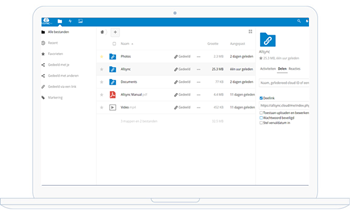
AllSync is one of the Best End to End Encrypted Cloud Storage Services. It’s made for the masses, meaning its features and UI are extremely simple and easy to use.
For starters, it’s a Zero-Knowledge Cloud storage service. So the company at no times has access to any of your files. AllSync also has a fully functional Web version, and hence no download is required to start using the platform.
Provides users control over the content, you can set a password, expiry time as well as the ability to edit the content. Downloading files in batches is another possibility.
Despite being a Cloud storage, it’s not void of media playing capabilities. So you can play music, videos and photos while on Allsync. It’s pretty liberal as well and allows creation of unlimited user accounts. No limit on the bandwidth is applied either so it’s unlimited downloads and uploads (the total storage space is still limited).
Moreover, alike Google Sheets/Google Docs etc. it has a collaboration suite and allows creation of docs and sheets, and offers live-collaborations. Leaving comments and feedback is possible as well. As for security, there’s 2-Factor authentication.
It even can be enabled to auto-sync all camera photos and videos. Versioning of files is possible, those different versions can be downloaded as well. They allow personal subdomains, as well as custom domains.
Even accepts Bitcoin as a mode of payment among fiat modes. The available payment plans offer storage spaces with 50GB, 500GB, 1TB, 2TB and 2TB Storage. The pricing starts from EUR 0.08/month and goes upto EUR 14.99/month.
Pros
- Extremely Feature Rich.
- Secure
- Zero-Knowledge.
- Extremely cheap starter plans.
Cons
- Bans Accounts on Bandwidth Abuse.
14. ProtonDrive
Website: http://beta.protonmail.com/
The biggest reason why ProtonDrive is on this list is because it’s from the ProtonMail team. ProtonMail is the most established anonymous email service in existence today. They also launched ProtonVPN a few years back which too became equally popular.
Just like ProtonMail, the drive too is subject only to Swiss laws. The ProtonDrive is without doubt End-to-End encrypted, so, yes, only you and the person you share your files with will have access.
As far as link-sharing goes, ProtonDrive allows sharing encrypted links with non-Proton users. So, anyone can access the files without being forced to have a Proton account.
ProtonDrive is still in its beta phase and was launched just a few months back. In order to gain access to the beta version , you only need a standard Protonmail account. No separate signing up is required.
Also, the early-access remains forever. Meaning, when ProtonDrive is officially released, you’ll retain your access. It doesn’t offer many features now, but new features are being implemented almost every single day.
Point is, if you need cloud storage you can absolutely trust, ProtonDrive is one of the most secure options you can find.
15. Duplicity
Website: http://duplicity.nongnu.org/
The prime reason why Duplicity is listed here? It’s open-source and 100% free. That says a lot about trust, authenticity and legitimacy, doesn’t it? How so? Well, being open-source, all its claims, security and protocols can be verified by any individual on the planet, right?
Obviously it’s End-to-End encrypted so nothing is intercepted mid-way without encryption.
Its “incremental backup” feature is something else we like. You do not have to re-upload an entire file simply because you changed a line, or a single file within a folder. Only the “change” is re-uploaded. This not only saves you time but also bandwidth.
It also supports versioning which allows you to recover older versions, or just correct a mistake.
The only problem is with its setup. It does require basic knowledge of computers and isn’t exactly “very easy” to setup.
Also do note that it may at times eat up quite a bit of temp space on your system. However, it can manually be directed to use a different directory for the temp space which offers you the choice of location.
Pros:
- E2E encrypted
- Incremental backups
- Versioning
Cons:
- Setup is a bit complicated.
16. Internxt
Website: https://internxt.com/
Internxt is a zero-knowledge cloud storage service that has no access to whatever you store there. The company is very vocal about its respect for privacy.
The company itself is based out of EU. While that’s not the location we root for, its privacy policy and algorithms do guard against problems.
Being E2E encrypted, the data is encrypted on your side and is never accessible by Internxt.
The best part? It’s absolutely free. The only limitation on this plan is that you can store maximum 2GB of files.
Even the paid plans start as low as €0.89/month (this is billed €10.68/year). This plan offers 20 GB storage, the next plan offers 200 GB for EUR 3.49/month.
Even lifetime plans exist, starting at €299.00.
I get it, maybe you don’t like the interface or you need special features? They offer a 30-day moneyback guarantee if you don’t like the product. (You can always try the free version first).
Best features:
- E2E encrypted
- Cross device/OS supported
- Forever free plan
- Lifetime plan exists.
Cons:
- Needs few more “sharing” features.
How To Choose The Best Zero Knowledge Cloud Storage Services?
We’ve got you 13 options. This at times may be confusing.
So, if you need a direct answer, I’ll just say that Sync is the most secure and feature-rich answer for you.
However, if you’d like to make your own choices (as you should), do pay attention to the following factors:
- Base country: Always pay attention to the country of operations for the storage provider. Meaning, it’s best to go with companies based out of the U.S. However, note that even with U.S companies, there isn’t much risk, simply because it’s E2E encrypted.
- Sharing features: Quite often, you’d need to share your files with others. See if your provider offers advanced (and secure) sharing features? Self-destructing links, download limits, password-protection are some of the feature to look out for.
- Anonymous payments: Try going with sites which accept anonymous cryptocurrency payments. This is another reason we’ve recommended Sync, it’s 100% anonymous.
- Other security features: Going with companies which offer 2-FA and other additional security measures is better.
- Pricing: Do remember not to give up on your anonymity just to save a buck. It’s okay to pay a couple cents extra if the company is offering more security/anonymity.
- Ban/termination policy: I’ve included these wherever possible for the above companies. If not, contact the companies individually and be clear of the consequences of account termination. Will you be able to retrieve your data or is it gone forever?
You can have your own criteria, but I’m sure these should help choosing a secure cloud storage provider.
What is End to End Encrypted Encryption?
In the simplest possible words, End to End encryption is the kind of encryption which encrypts the data between two parties.
So only the Sender/Creator and the intended receiver of the data can decrypt and access it. No other party, not even the service providers, companies, govt. agencies or anyone else can access the content.
A slightly more complex explanation would be that public keys of both parties (the sender and the receiver) are used to encrypt the data, while private keys are used to decrypt it.
In most cases, the data is encrypted on the client (sender’s) device just before the data is sent using his/her keys. These keys are not owned by, or known to the service providers and hence they can’t decrypt the data.
So if you also were curious about “Who can access the files stored on these End to End encrypted cloud storage platforms”, the answer is- Only you (and anyone else you willingly share the file with).
I don’t know How to Encrypt or Decrypt Files, How can I Use these Services?
You don’t have to.
These encryption and decryptions happen in the back-end, automatically. All you have to do as a user is, upload your files. Or maybe share them with others if you want.
No coding, encrypting or anything of that nature is required on the user’s part to use any of these end to end encrypted cloud storage services. (Although occasionally you may need to set a password, which is pretty common and easy).
What is Cloud Storage?
I doubt anyone here is oblivious to what the cloud is, but let me answer it just to be safe.
In the simplest possible words, the cloud means “The Internet”. Cloud storage means data stored on the Internet.
Or in other words, data stored in datacenters/servers which can be accessed over the Internet.
Companies own datacenters which are like Hard-disks for the Internet. Users upload their data to the companies, which store the data on these servers. This data can then be accessed at a later time by the user over the internet.
Another major benefit that these Best End to End Encrypted Cloud Storage Services provide apart from the encryption is “accessibility” and “ease of sharing”.
In other words, the files stored on our local Hard-Disk drives are only accessible on those drives and those systems. While the files stored on the cloud can be accessed from any system, anywhere on the world. As long as you have the right password. This pretty much makes your data portable without having to carry anything.
As for “ease of sharing“, you can’t share your local HDDs with your friends and colleagues unless they have physical access. And even then, privacy remains an issue if you simply share the entire HDD. With Cloud storage services however, you can share almost anything simply by sharing a link.
Moreover, selective-sharing lets you control exactly which files they gain access to, everything else still remains unavailable to them. Additionally, advanced options such as setting a password, expiry-time for the shared link, monitoring stats related to views/downloads of the content is possible.
All in all, Cloud storage isn’t just about “storing” files. It takes digital data to a whole another level, making it more connected, secure and accessible.
What is GDPR?
I’ve mentioned “GDPR Compliance” multiple times in this article on End to End encrypted cloud storage services, and that may be confusing to some.
GDPR stands for “General Data Protection Regulation” and it is a law (for the lack of a simpler word), which forces companies and organizations to protect the privacy and identity of users.
It’s primarily for companies based in, or operating from the European Union, which is true for most of the companies on this list.
The GDPR protects your personal information (name, address, Ids etc), biometric data, web data (cookies, location etc), political opinions and basically a plethora of other personal information.
A simpler answer is- Companies which comply to GDPR regulations are a much safer and better choices than those which don’t.
Is it Legal to use End to End Encrypted Cloud Storage Services?
Yes, completely.
End to End encrypted Cloud storage is just additional space for your data. Although the “Data” stored there may be illegal. For e.g. storing pirated content.
If you use Encrypted cloud storage only for storing legal contents, it’s 100% legal. Note that because these services are End-to-End encrypted, even illegal content if and when stored is only accessible and known to you.
In either case, the act of using encrypted cloud storage services is 100% legal.
What is Block-level Backup?
This is another term mentioned frequently throughout this article. Block level backup is the technology which lets a cloud platform backup only “new” changes instead of re-uploading the entire content.
For e.g. if you have a 1GB folder/file and you add 50Mb extra data to it, only the extra 50Mb data is uploaded to your cloud backup and not the entire 1GB file.
In other words, only the modified parts of the files are backed up. This saved not only time, but also bandwidth and system resources.
What is the Difference between Cloud Storage and Cloud Backup Services?
The truth lies in the two words- “Storage” and “Backup.
A cloud storage provider is like an additional hard-disk, on the cloud. It’s where you can store new (or old) data from your offline, local hard disks.
The goal of cloud backup companies on the other hand is “creating copies” of your already existing data. Obviously you can add new data and use it as extra storage space in most cases.
Cloud storage services generally tend to offer a lot more sharing control (password protected links, expiry time, custom folder protection etc). as compared to cloud backup services.
Fiat Vs. Bitcoin Payment Modes
I’ve emphasized greatly on every company’s support (or the lack of) for Bitcoin throughout this article.
That’s simply because fiat payments are completely transparent and traceable. Once you purchase an account using fiat methods, every file you store online can be linked back to your real-life identity using your payment details.
But if you make payments using Bitcoin, there’s much lesser chance of companies/agencies being able to trace the origin of those files back to you. (Obviously other precautions such as a VPN would be required to make that happen).
Can these companies hand over your files to law-enforcement agencies?
“Can” they? Yes. Will they? No.
For two primary reasons, first it’ll ruin their business reputation forever. And second, because all of these companies support “End to End encryption”, there’s no point in doing so as those agencies won’t be able to access the actual data in the first place.
Why are Datacenter/Server Locations Important?
Another aspect I’ve mentioned repeatedly is the server location of these companies. That’s simply because the country any server is based off will have a lot of control over the data and the company.
Hence a company based in Switzerland is a much better choice to store your data, as compared to the intrusive, privacy-violating U.S or other similar countries.
Is Zero-Knowledge Encryption Really the Best Solution?
While we take Zero-Knowledge encryption to be the perfect solution in most cases, is it really so? Are there absolutely no flaws in the encryption and its distribution?
Seems like there is. Note that Zero-Knowledge encryption means the cloud service provider doesn’t have any knowledge of a user’s encryption keys. But even in this scenario, the files are encrypted using the cloud provider’s encryption software and algorithms.
So it all rests on how secure and trustworthy that specific service providers’ encryption is. In a perfect world, because the files are encrypted prior to being uploaded no third-party would be able to access them, but it isn’t a perfect world, is it? There’s no real way to know that the NSA and other similar organizations do not have backdoors into the cloud provider’s systems.
Additionally, Zero-Knowledge means the cloud provider has absolutely no way to access your encryption keys, this prevents them from being able to recover your files and help with the decryption if the user loses his/her keys under any circumstances.
So the “idea” by itself is pretty secure and impressive, it all comes down to the extent to which any company is able to implement the claimed and said algorithms and tech.
Final Words:
So that’s me signing off this piece on best End to End encrypted cloud storage piece folks. I’ve tried my best to get you an outline of all the companies and their features without dragging them into page-long stories.
In my personal opinion, Tresorit is one of the best choices to go with, but then again Sync, PCloud and Mega too have proven track records.
Anyway do let me know which of these owned your hearts and minds? Think we missed someone who deserved a mention? Do let us know. And do drop your two cents on this End to End encrypted cloud storage piece in the comments?





